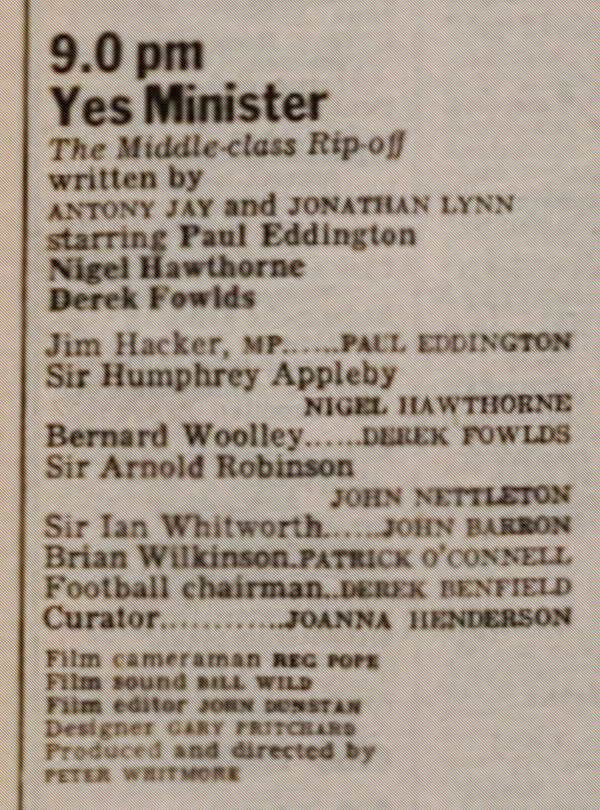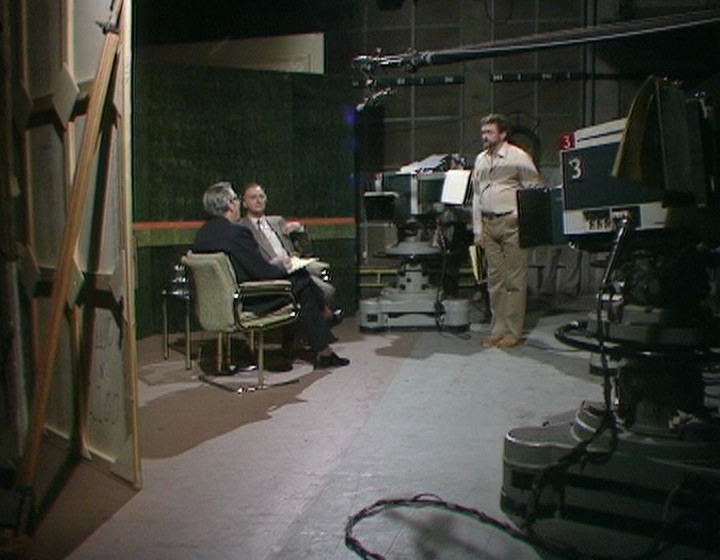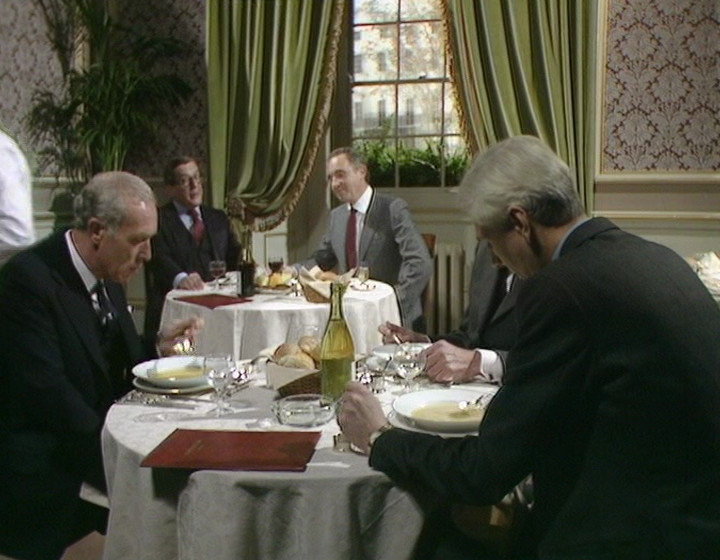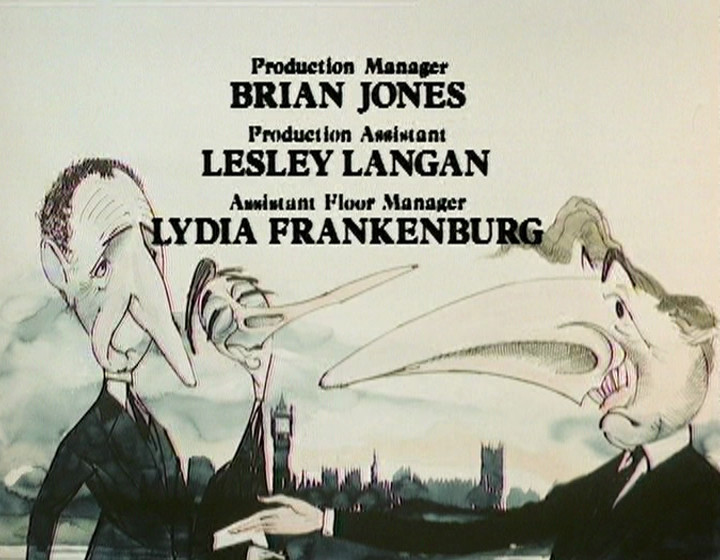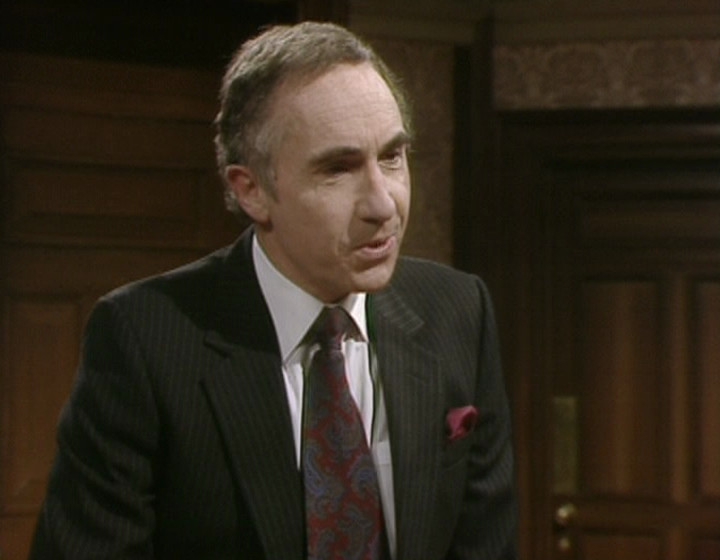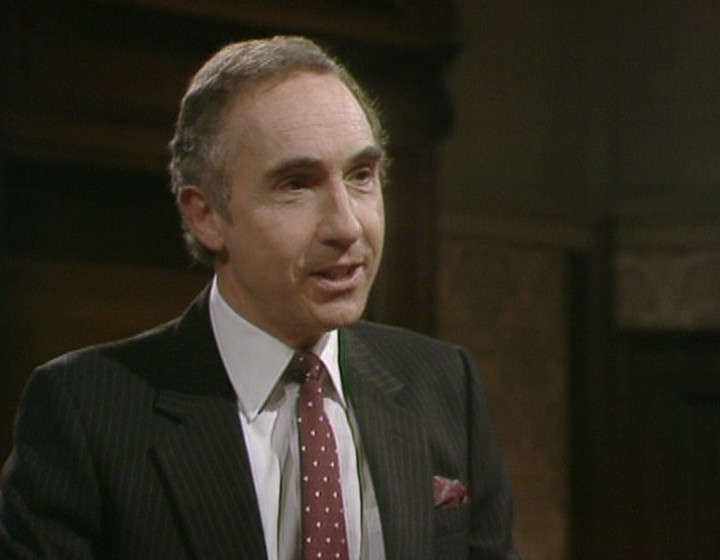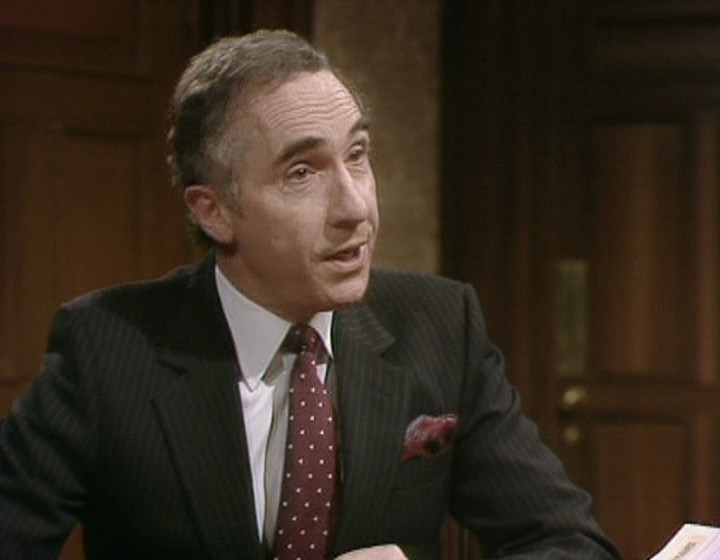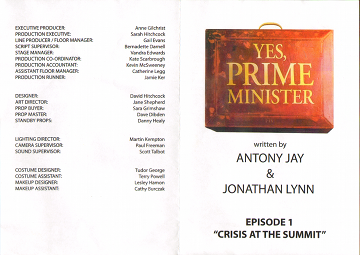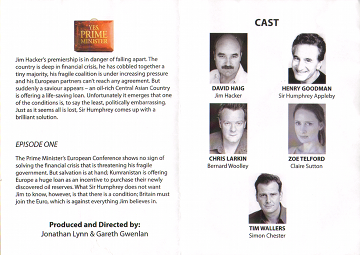On the 9th March 1981, BBC2 first broadcast the Yes Minister episode “The Death List”. It’s a particularly good episode for many reasons, not least Graeme Garden marching into the programme for one show-stealing scene, and turning it into The Goodies.
But that’s comedy, and we don’t deal with comedy around here. We deal with far more important things. Such as: which issue of Private Eye is Jim Hacker reading from here?
Is it a real issue of the magazine? Or is it a prop, made from scratch?
Let’s see what we can dig up. Our first point of call is, of course, Private Eye‘s covers library, which usefully gives us an image of every single cover since the magazine’s first issue. And to help narrow down the search, we also know that “The Death List” was recorded in studio on the 1st February 1981. Did they just grab the latest issue of the Eye and bung it in Paul Eddington’s hands?
Not quite. The above cover doesn’t appear in Private Eye‘s cover archive. But Issue 497, dated the 2nd January 1981 – just a month before the studio date – looks rather suspicious:
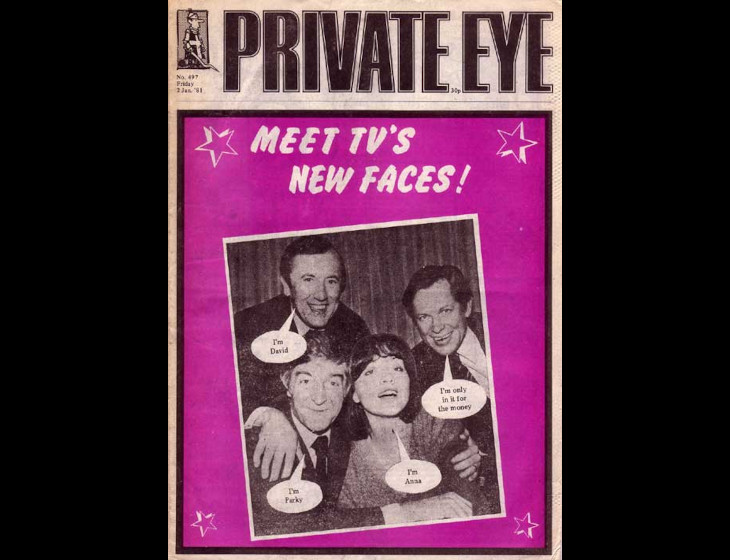
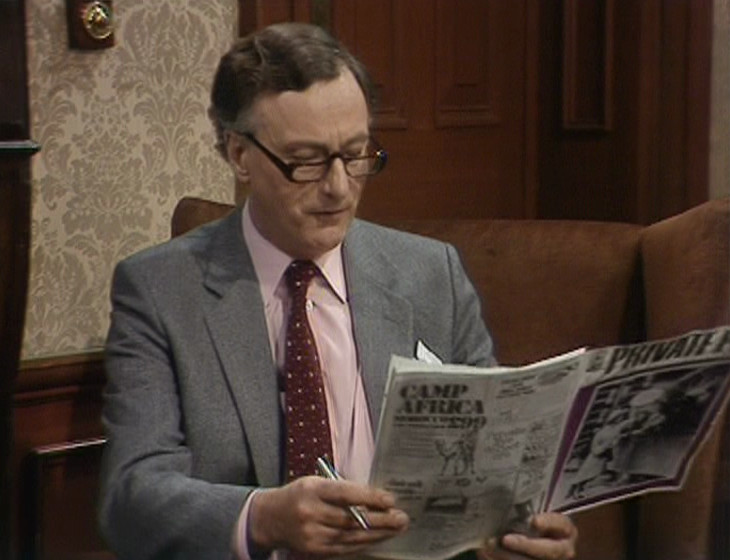
That purple background is very distinctive. Which gave me ideas. But there was only one way to know whether I was right. Luckily, the back page of the magazine is very prominent in the episode as well, with the obvious wording of CAMP AFRICA in the top left.
A quick eBay later, and I held a copy of Issue 497 in my sweaty, desperate hands. Was my gut feeling correct?
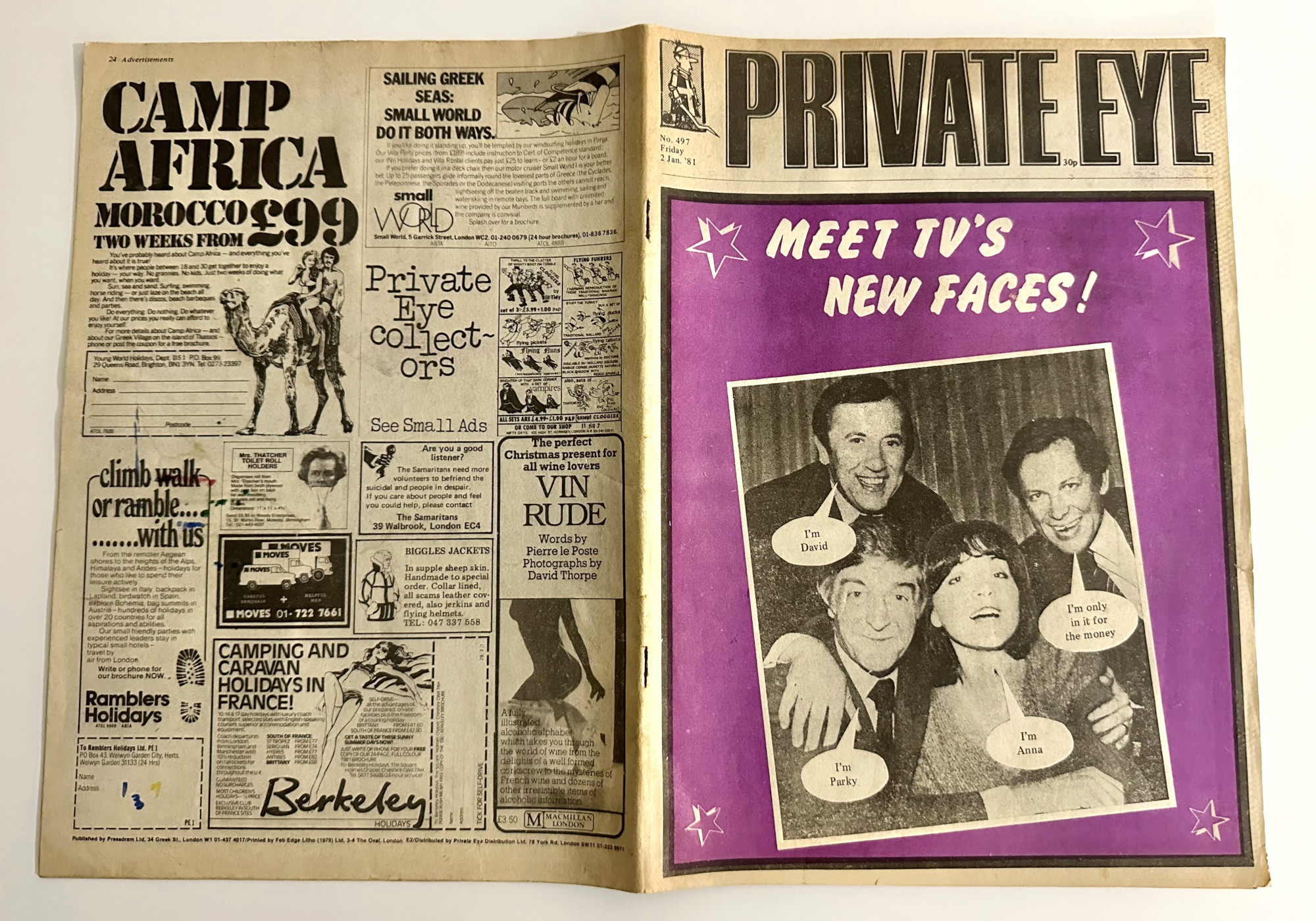
Yes indeed. The prop department simply got a recent issue of Private Eye, stuck a new picture on the front over the old one, and job done. Lovely.1
The question is: why exactly did Yes Minister bother to change the picture? Is it because the original cover has TV-am stars on? Could they not get the rights? Or did the Beeb literally not want to advertise ITV?
It’ll be something like that, anyway. But I would suggest there’s another reason why it makes sense to have a mocked-up Private Eye cover. The world of Yes Minister isn’t quite our world. Sure, there are newspapers dotted around the series which have real-life headlines, but they aren’t usually plot-relevant props. As soon as something gets drawn into the story, it makes sense for the issue of Private Eye to not be a “real” one. Things are supposed to be slightly askew. ↩

